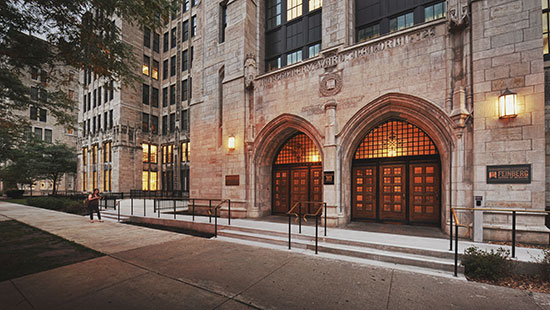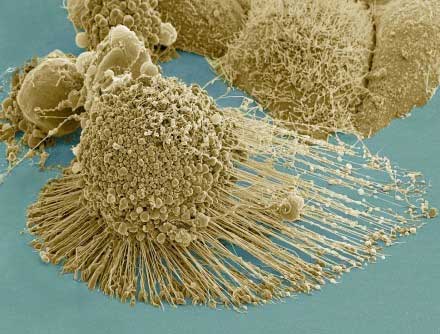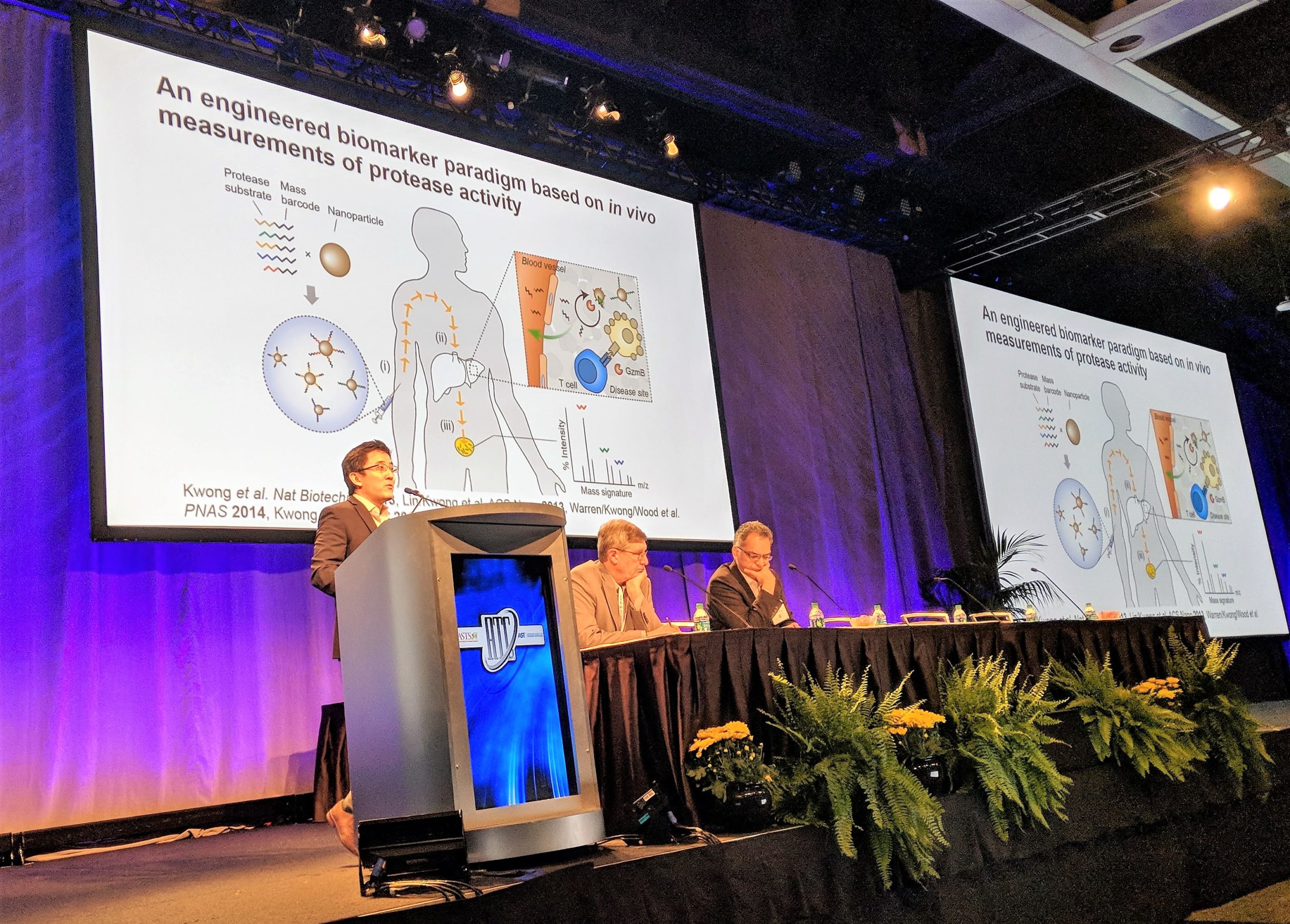Dr. Kwong gives talk at nanoDDS 2018
The 16th International Nanomedicine and Drug Delivery Symposium highlights new groundbreaking discoveries and developments in nanomedicine and drug delivery. Revolutionary advances in this area require collaboration amongst researchers working in a diverse array of fields including nanotechnology, materials science, imaging, cell biology, tissue engineering, gene editing, drug and gene delivery as well as clinical research. Dr. Kwong’s talk “Harnessing protease activity as ‘biological bits’ for programmable medicine” demonstrated our approach of using proteases to guide next-gen treatment regimens.
The 16th International Nanomedicine and Drug Delivery Symposium highlights new groundbreaking discoveries and developments in nanomedicine and drug delivery. Revolutionary advances in this area require collaboration amongst researchers working in a diverse array of fields including nanotechnology, materials science, imaging, cell biology, tissue engineering, gene editing, drug and gene delivery as well as clinical research. Dr. Kwong’s talk “Harnessing protease activity as ‘biological bits’ for programmable medicine” demonstrated our approach of using proteases to guide next-gen treatment regimens.













